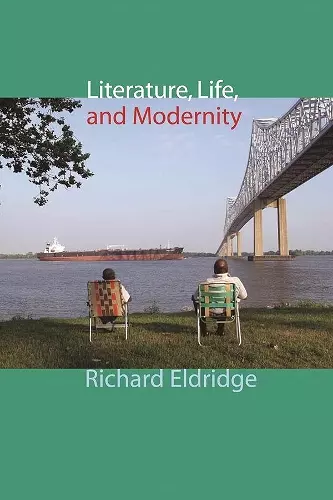Literature, Life, and Modernity
Understanding literature's impact on contemporary existence
Format:Hardback
Publisher:Columbia University Press
Published:19th Sep '08
Currently unavailable, and unfortunately no date known when it will be back

This insightful exploration in Literature, Life, and Modernity reveals how literature shapes our understanding of contemporary life and enhances our engagement with it.
In Literature, Life, and Modernity, Richard Eldridge delves into the profound relationship between literature and the complexities of contemporary existence. He argues that literature transcends mere entertainment; it serves as a reflective medium that helps readers navigate their lives amidst intricate economic and technological landscapes. By engaging with challenging literary works, readers can immerse themselves in the roles of protagonists or authorial figures, fostering a deeper understanding of the meaningful possibilities and obstacles they encounter in their own lives.
Eldridge emphasizes that literary form creates a framework for care, reflection, and investment, influencing how readers interact with the world around them. Through sustained attention to literature, individuals can cultivate a more active engagement with their realities, moving beyond passive experiences to fully participate in modern life. The book draws on the thoughts of influential philosophers such as Descartes, Kant, and Adorno, while also examining the works of notable authors including Goethe, Wordsworth, and Rilke.
Ultimately, Literature, Life, and Modernity presents a compelling philosophy of literature that addresses the essential questions of why we read and the value that literary engagement brings to our fragmented lives. Eldridge's insightful analysis not only highlights the cognitive experiences offered by literature but also invites readers to reflect on their own subjectivity and the paths toward meaningful living that literature can illuminate.
An important book... Highly recommended. Choice
ISBN: 9780231144544
Dimensions: unknown
Weight: unknown
192 pages